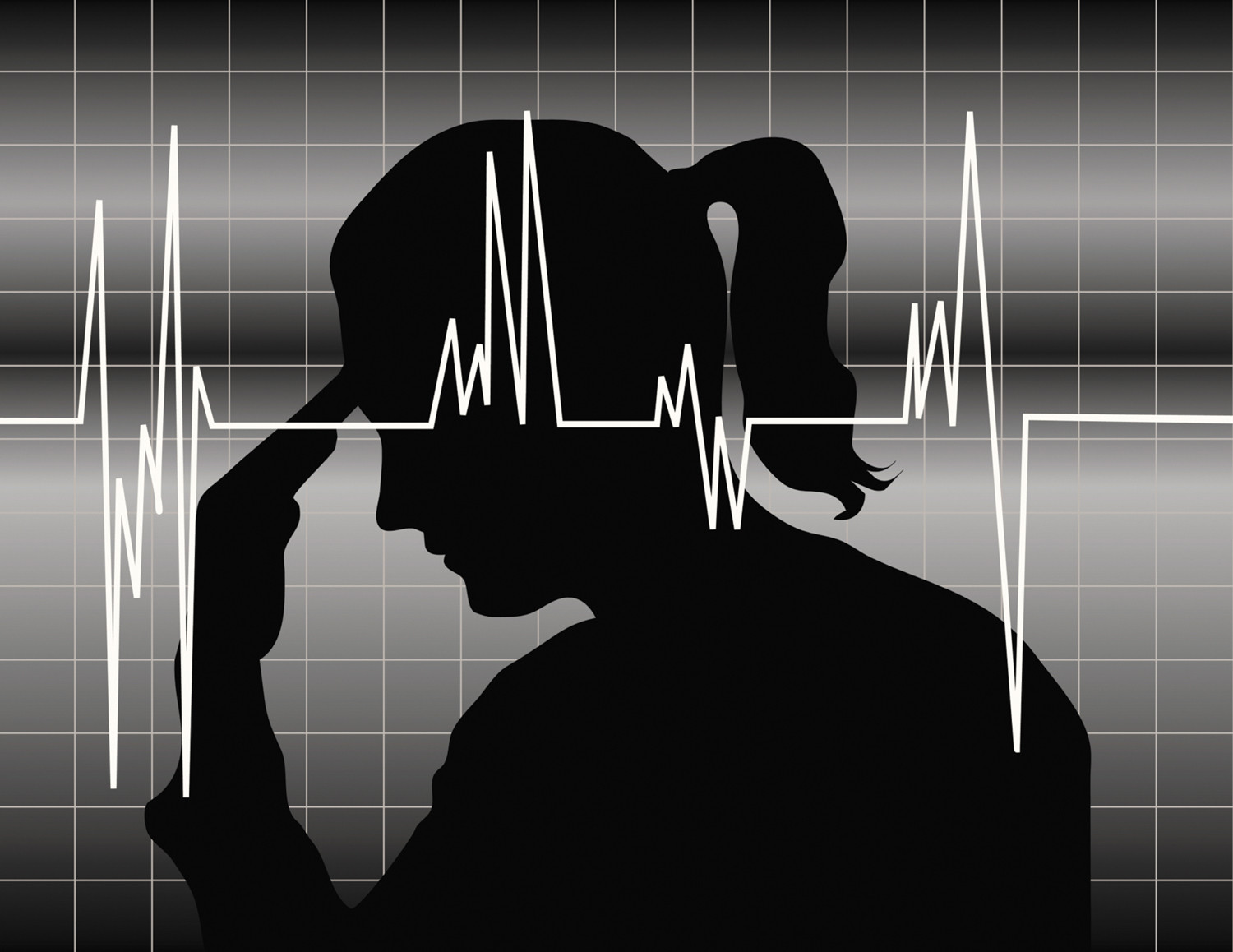
How — and why — to fit more fiber and fermented food into your meals

UTI in older women: Why postmenopausal women are susceptible to urinary tract infection, and what to do about it

Can a routine vaccine prevent dementia?

Some adults may need a measles booster shot. Who should get one and why?

Less butter, more plant oils, longer life?

Healthier planet, healthier people

Counting steps is good — is combining steps and heart rate better?

Appendix pain: Could it be appendicitis?

Can saw palmetto treat an enlarged prostate?

How does Ozempic work? Understanding GLP-1s for diabetes, weight loss, and beyond
Positive Psychology Archive
Articles
An outlook better than optimism?
While looking at the sunny side of life offers a lot of light moments, there may be a better path to well-being.
Optimism feels good. The expectation that positive things will happen is associated with happiness and better health, including fewer heart attacks and a lower risk for premature death. Pessimism, on the other hand, feels bad; it makes you depressed or anxious and keeps the fight-or-flight system activated, triggering chronic inflammation (which is linked to many diseases).
You might think the best way to improve your well-being is to cultivate an optimistic outlook. Think again. "Better than cultivating an artificial optimism is to see the situation and the world realistically," says Ronald Siegel, an assistant professor of psychology, part-time, at Harvard Medical School and medical editor of the Harvard Special Health Report Positive Psychology.
Staying positive during difficult times
The trials and challenges of this year are weighing heavily on many people, but attempting to employ positive psychology to put personal struggles in context, and accepting the ups and downs life brings, can ultimately increase positive feelings and provide perspective.
A free, easy way to help your health
News briefs
Want something simple to boost your health? Try looking on the bright side. A large observational study published online Sept. 27, 2019, by JAMA Network Open tied optimism to fewer heart attacks and a lower risk for premature death. Researchers combed through 15 studies that included almost 230,000 people who were followed for an average of 14 years. Being optimistic was associated with a 35% lower risk for cardiovascular events and a 14% lower risk for an early death, compared with being pessimistic. The findings don't prove that seeing the glass half-full causes better health, but many other studies have reported similar findings. "Optimistic people may have healthier habits, such as regular exercise and healthy diets; and they may be better at regulating their emotions in stressful situations, which could also contribute to lower levels of inflammation. But we need more research to confirm it," says Dr. Laura Kubzansky, a study author and co-director of the Lee Kum Sheung Center for Health and Happiness at the Harvard T.H. Chan School of Public Health.
Image: Morsa Images/Getty Images
Trying to be perfect can cause anxiety
No one is "perfect." Yet many people struggle to be a perfectionist , which can trigger a cascade of anxieties. Striving to be a perfectionist may be a strong suit or a stumbling block, depending on how it's channeled, as clinical psychologist Jeff Szymanski explains. Dr. Szymanski is an associate instructor of psychology at Harvard Medical School and executive director of the International OCD Foundation.
"The core of all perfectionism is the intention to do something well," says Dr. Szymanski. "If you can keep your eye on intention and desired outcome, adjusting your strategy when needed, you're fine.... But when you can't tolerate making a mistake, when your strategy is to make no mistakes, that's when perfectionism starts veering off in the wrong direction." In its most severe form, perfectionism can leave you unable to complete any task for fear of making a mistake.
Take a moment to be mindful
Mindfulness is the practice of purposely focusing your attention on the present moment, such as how the air smells and feels as you walk your dog, or how a bite of bread tastes with dinner. The ultimate goal is to help shift your thoughts away from your usual preoccupations toward an appreciation of the moment and a larger perspective on life.
Scientific examination of mindfulness shows that it can improve both physical and psychological symptoms and create positive changes in health attitudes and behaviors.
Leverage your strengths for a more positive life
Strengths are built-in capacities for certain thoughts, feelings, and behaviors. Everyone has these capacities to one degree or another. Your particular pattern of strengths is part of what makes you unique.
When you play from your strengths, you are likely to feel more energetic and perform better than when you are trying to use a capacity that comes less naturally. For example, one person trying to influence a local school board to ban soft drink sales might have the strength to speak up forcefully and clearly at a general meeting (despite the almost-universal fear of public speaking). Another person strong in team-building might feel uncomfortable speaking out in a meeting but could successfully build consensus among parents, nutritionists, and others to weigh the issue and come to a decision.
8 non-invasive pain relief techniques that really work
| Image: Bigstock |
Sometimes pain has a purpose — it can alert us that we've sprained an ankle, for example. But for many people, pain can linger for weeks or even months, causing needless suffering and interfering with quality of life.
If your pain has overstayed its welcome, you should know that you have more treatment options today than ever before. Here, we've listed eight techniques to control and reduce your pain that don't require an invasive procedure — or even taking a pill.
How to stay motivated
Want to make a change but wondering how to stay motivated? Dr. Srini Pillay talks about the things that can impact personal motivation and the power of a sense of meaning to help you stick with your goals.
Tips for getting more energy
If you find yourself in a slump, Dr. Beth Frates shares what may be draining you and offers tips for getting more energy.
Why conquering stress can help your heart
Learning to deal with stress can lower your risk for anxiety, depression, and cardiovascular disease.
The more we learn about women's hearts, the more we realize that they are different from men's. One of the most dramatic differences is a rare heart condition called takotsubo cardiomyopathy, or broken-heart syndrome, that is nine times more common in women than in men. It has been cited as evidence that sudden emotional stress can actually cause death in some women.
Like a heart attack, takotsubo cardiomyopathy strikes suddenly with symptoms such as chest pain and shortness of breath; however, it does not involve clogged arteries. Takotsubo cardiomyopathy is brought on by a surge of stress hormones that literally bend the heart out of shape. As a result, when the main pumping chamber of the heart (the left ventricle) contracts, it balloons out, so it can't eject blood into the arteries effectively.

How — and why — to fit more fiber and fermented food into your meals

UTI in older women: Why postmenopausal women are susceptible to urinary tract infection, and what to do about it

Can a routine vaccine prevent dementia?

Some adults may need a measles booster shot. Who should get one and why?

Less butter, more plant oils, longer life?

Healthier planet, healthier people

Counting steps is good — is combining steps and heart rate better?

Appendix pain: Could it be appendicitis?

Can saw palmetto treat an enlarged prostate?

How does Ozempic work? Understanding GLP-1s for diabetes, weight loss, and beyond
Free Healthbeat Signup
Get the latest in health news delivered to your inbox!
Sign Up










